Distinguished Professor Huei-Tse Hou develops games based on principles of cognitive psychology to promote local revitalization
Distinguished Professor Huei-TseHou from the Graduate Institute of Applied Science and Technology, led a team of graduate students from diverse backgrounds including design, tourism, and information technology to collaborate with the cultural and historical site “Seimokuya” in Puzi, Chiayi, to develop the board game “Exploring Puzi Streets” and the mobile augmented reality game “Reunion in Puzi Streets”. These initiatives aim to encourage both locals and tourists to learn about the past and present of Puzi, stimulating local tourism.
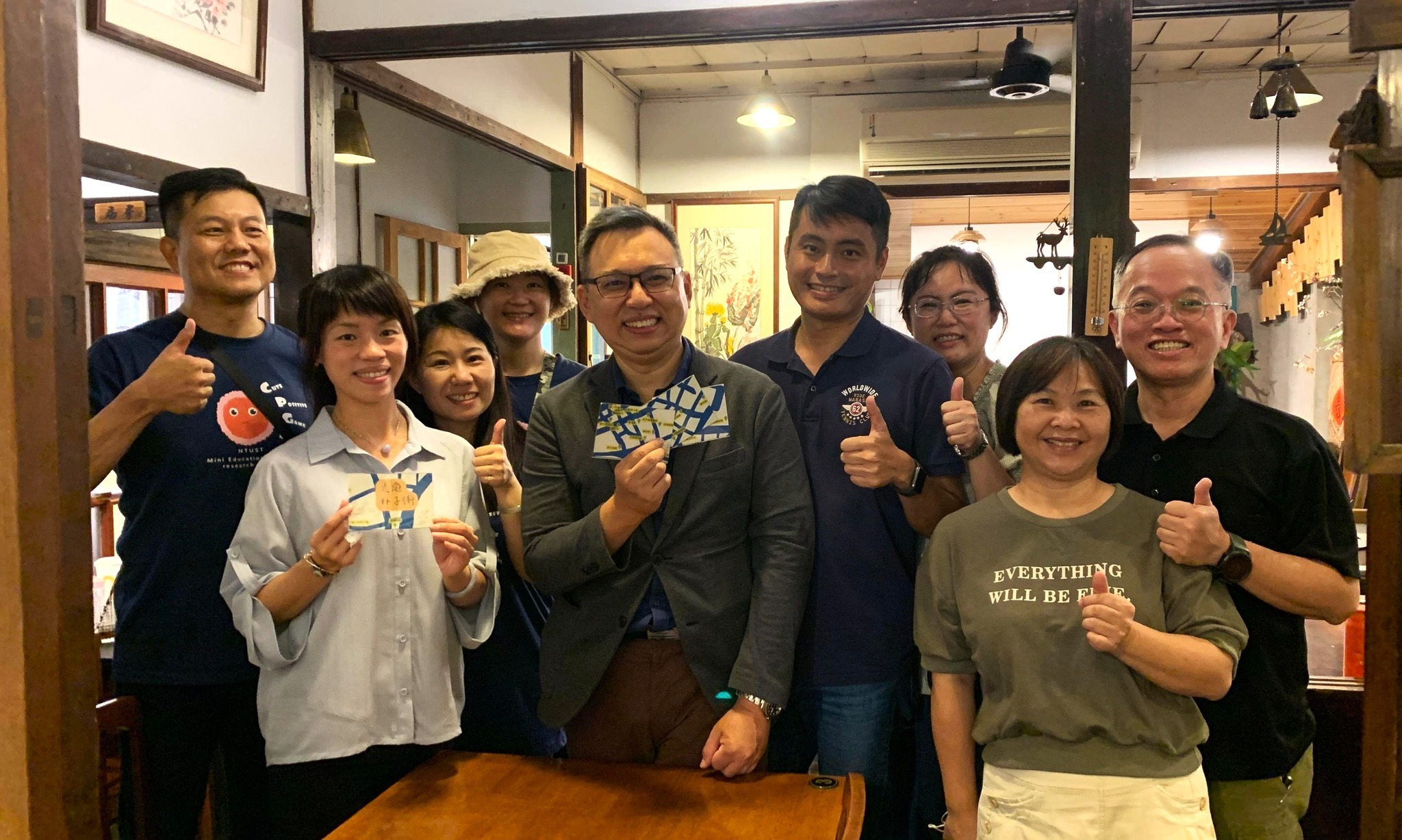
Professor Huei-Tse Hou leads students from various disciplines to collaborate with the cultural and historical site “Seimokuya” in Puzi, Chiayi
Puzi, situated near the Puzi River which connects Dongshi, Budai, and other coastal areas, served as a vital transportation hub connecting Zhuluo (the old name of Chiayi) urban area and maritime trade during the Qing Dynasty and the Japanese colonial period. It was densely populated, with a flourishing medical and cultural scene, featuring numerous Western clinics and bustling activity. Unfortunately, with changes in industrial structure and the opening of highways, the local population of Puzi gradually declined, and the number of visitors dwindled compared to the past.
Professor Huei-Tse Hou, who was born in Puzi, has always wanted to contribute to the development of his hometown's industries. Hence, he collaborated with “Seimokuya", a coffee shop located in the center of Puzi, which was renovated from an old clinic. Over two years, they developed a game set called “One Card, Two Plays” to introduce more people to the unique aspects of Puzi. The illustrations of historic landmarks, scenic spots, and local delicacies on the cards were hand-drawn by local residents and children.
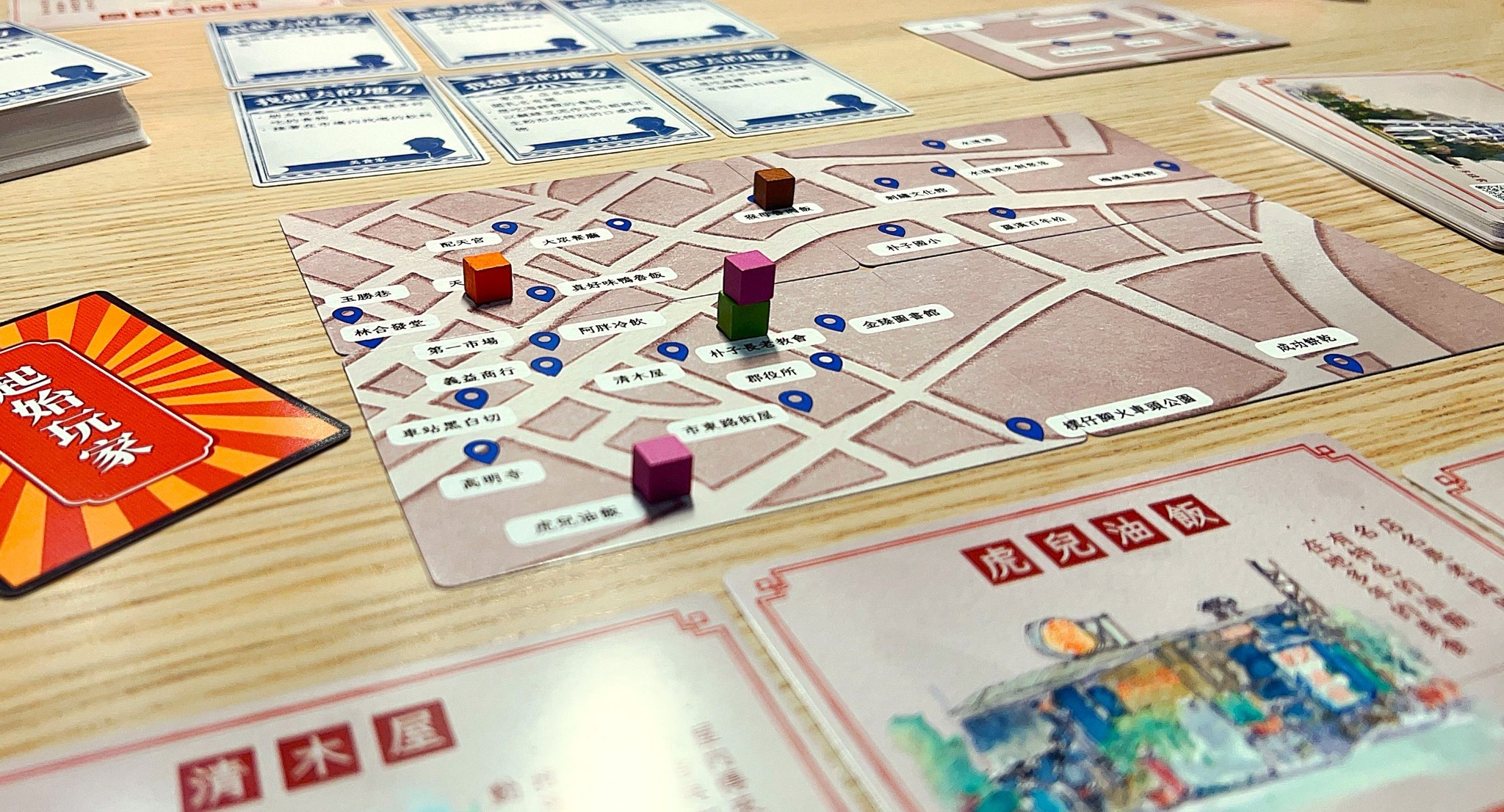
The board game “Exploring Puzi Streets”, designed by Professor Huei-Tse Hou's team , aims to help players explore local attractions and cuisine
During the game, players start by taking on the role of tour guides in the board game “Exploring Puzi Streets”. They must fulfill customers' requests by arranging the most suitable sightseeing routes in Puzi and competing or forming alliances with other players to see who can attract the most customers. Once players become familiar with the local attractions in Puzi, they can pick up their phones, leave the designated points, and immerse themselves in the augmented reality (AR) game “Reunion in Puzi Streets”. They physically navigate through the streets and alleys, searching for clues, solving puzzles, and helping the grandfather in the game find his childhood sweetheart.
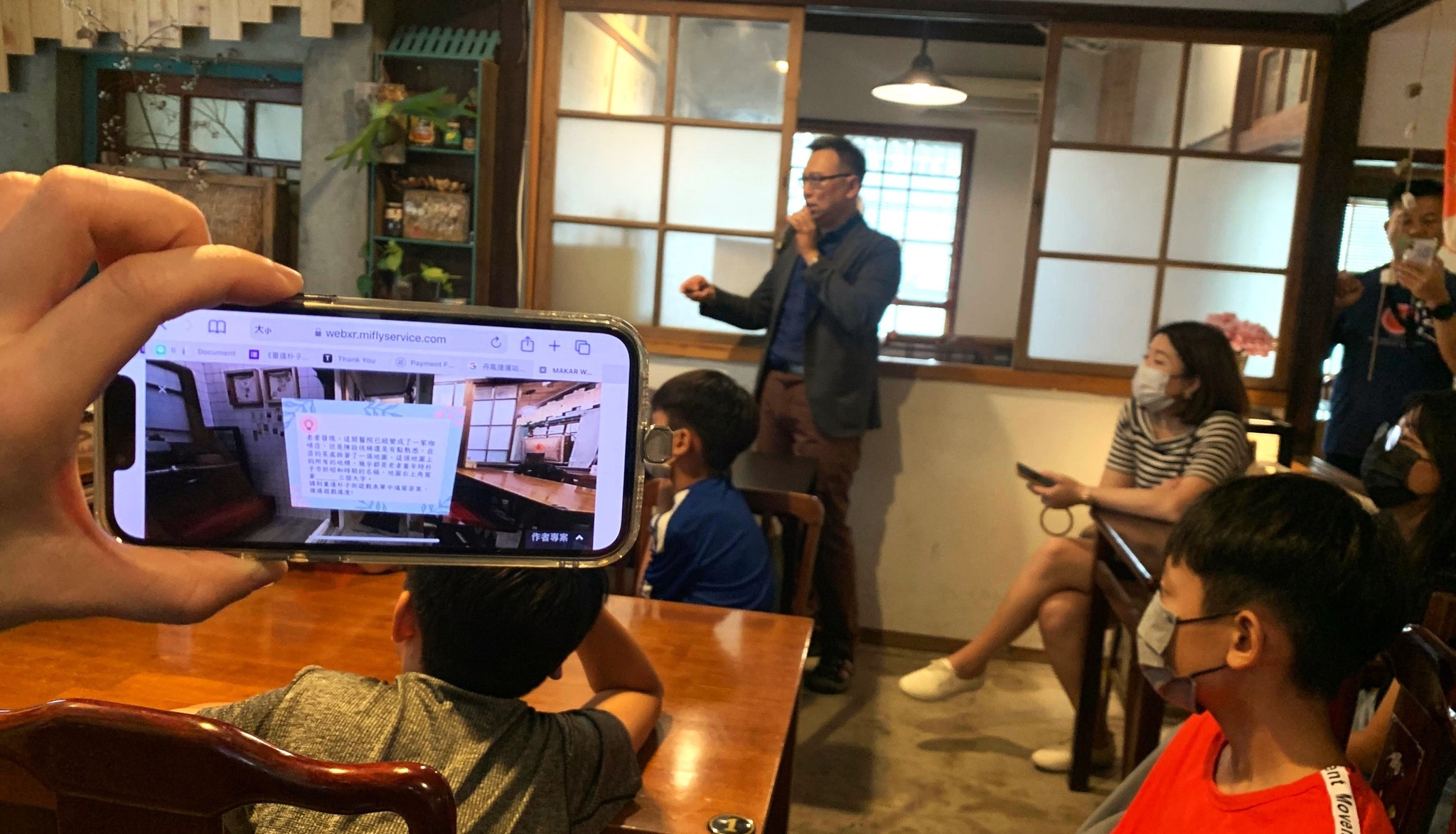
The game developed by Professor Huei-Tse Hou's team features a “one card, two plays” concept
Professor Huei-Tse Hou mentioned that while there are tourist attractions in the mountainous areas and by the seaside in Chiayi, including the Southern Branch of the National Palace Museum, Puzi tends to be overlooked. However, Puzi offers the opportunity to stroll and appreciate Fujian-style architecture from the Ming and Qing dynasties, as well as relics of medical culture from the Japanese colonial period. In a short time, visitors can catch a glimpse of the evolution of urban development in Taiwan, which is quite special. Through these two games, he hopes that in the future, tourists traveling to and from other attractions will have the chance to visit Puzi and get to know the local area.
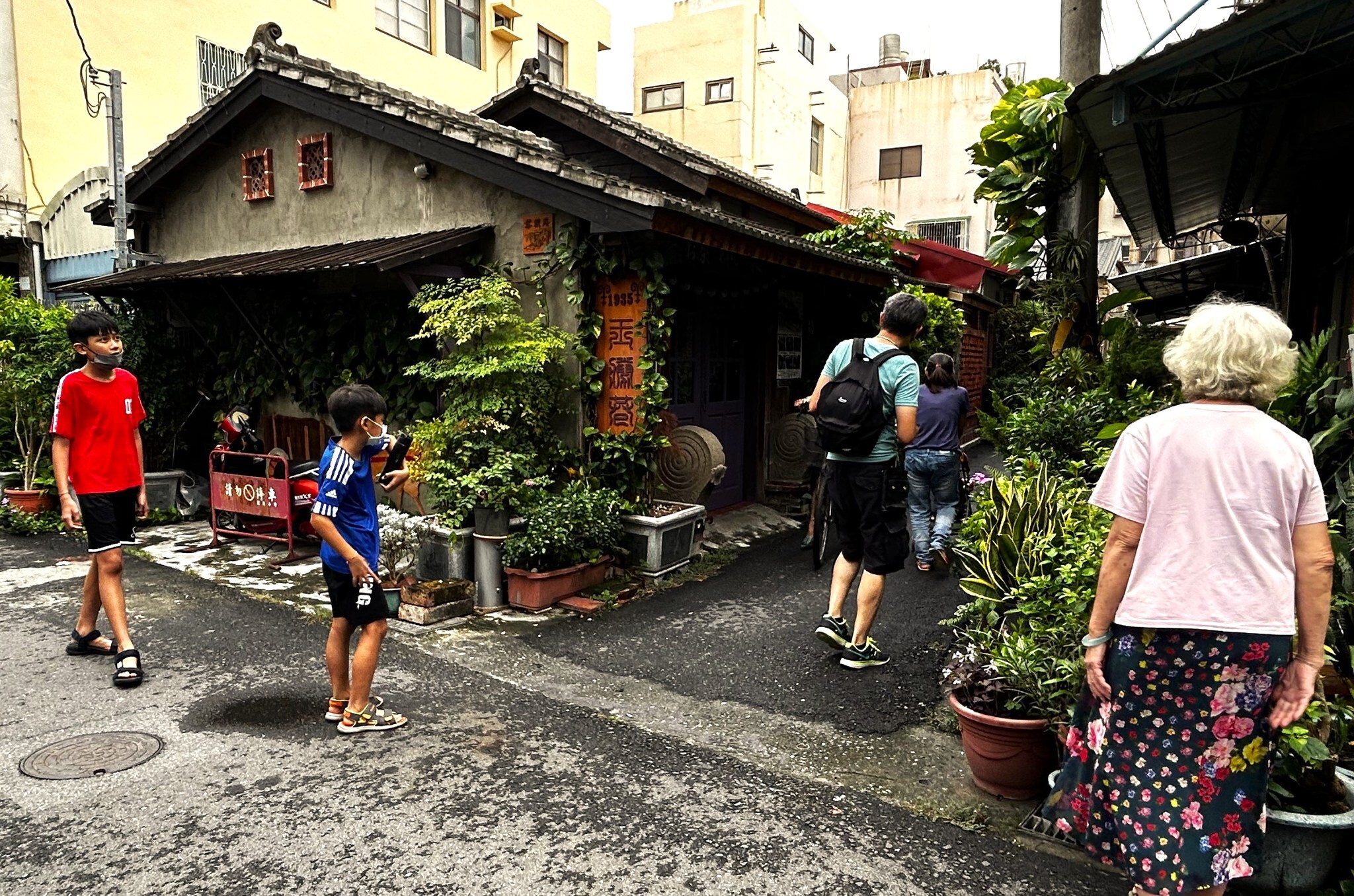
In “Reunion in Puzi Streets”, players immerse themselves in the streets and alleys, interacting with elders and shop owners.
During the game development process, the team organized several playtesting sessions, with participation from local school principals, teachers, students, the mayor of Puzi, and the chief of Yizhu Township. Both adults and children were able to complete the game everywhere, sparking the curiosity of many elders and opening up opportunities for dialogue. Professor Huei-Tse Hou mentioned that board games developed by the team at Taiwan Tech undergo repeated testing to establish foundations in cognitive psychology and social psychology, ensuring that players not only have fun but also learn knowledge.
“Exploring Puzi Streets” has already had two related papers presented at international conferences. Through psychological scales and questionnaires, the team measures players' engagement, anxiety levels, and ease of operation. They also conduct pre- and post-tests on players' local knowledge within the game, employing a multi-faceted approach to find the optimal presentation method for the game, aiming to truly achieve the goal of combining education with entertainment.
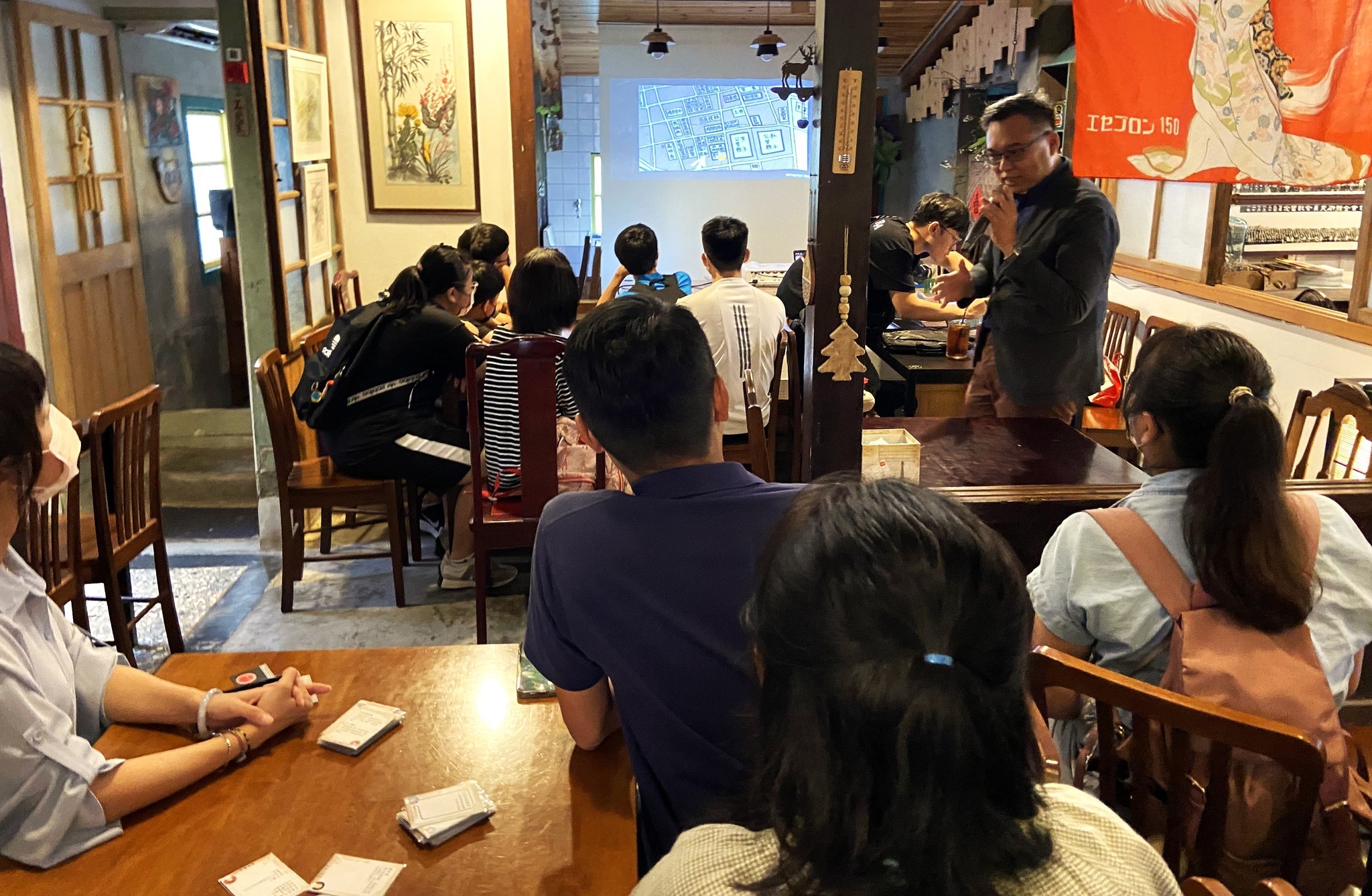
The design of both “Exploring Puzi Streets” and “Reunion in Puzi Streets” is based on principles from cognitive and social psychology
Now, anyone can find the board game “Exploring Puzi Streets” at Seimokuya. School teachers can also utilize it during cultural and historical exploration teaching activities. In the future, Professor Huei-Tse Hou plans to expand the game to more towns and collaborate on “local revitalization” initiatives.
In addition to promoting local revitalization, this game development aligns with the research project of the Empower Vocational Education Research Center at Taiwan Tech for higher education. It helps players cultivate guiding and planning abilities in the service and tourism industries while designing tour routes, and facilitating the integration of students, graduates, and industries.
The full name of the development team is the “Mini Educational Game group, e-Learning Research Center, Taiwan Tech (NTUST MEG)”, specializing in nurturing talents in educational game research and development and conducting industry-academia collaborations. In the past, they have collaborated with the National Palace Museum to develop “Quest for Secrets - Emperor Qianlong's Inspection Tour” and worked with Cathay Life Insurance to develop “WinWin Insurance+” for corporate training, using board games to help different groups learn and apply new knowledge.
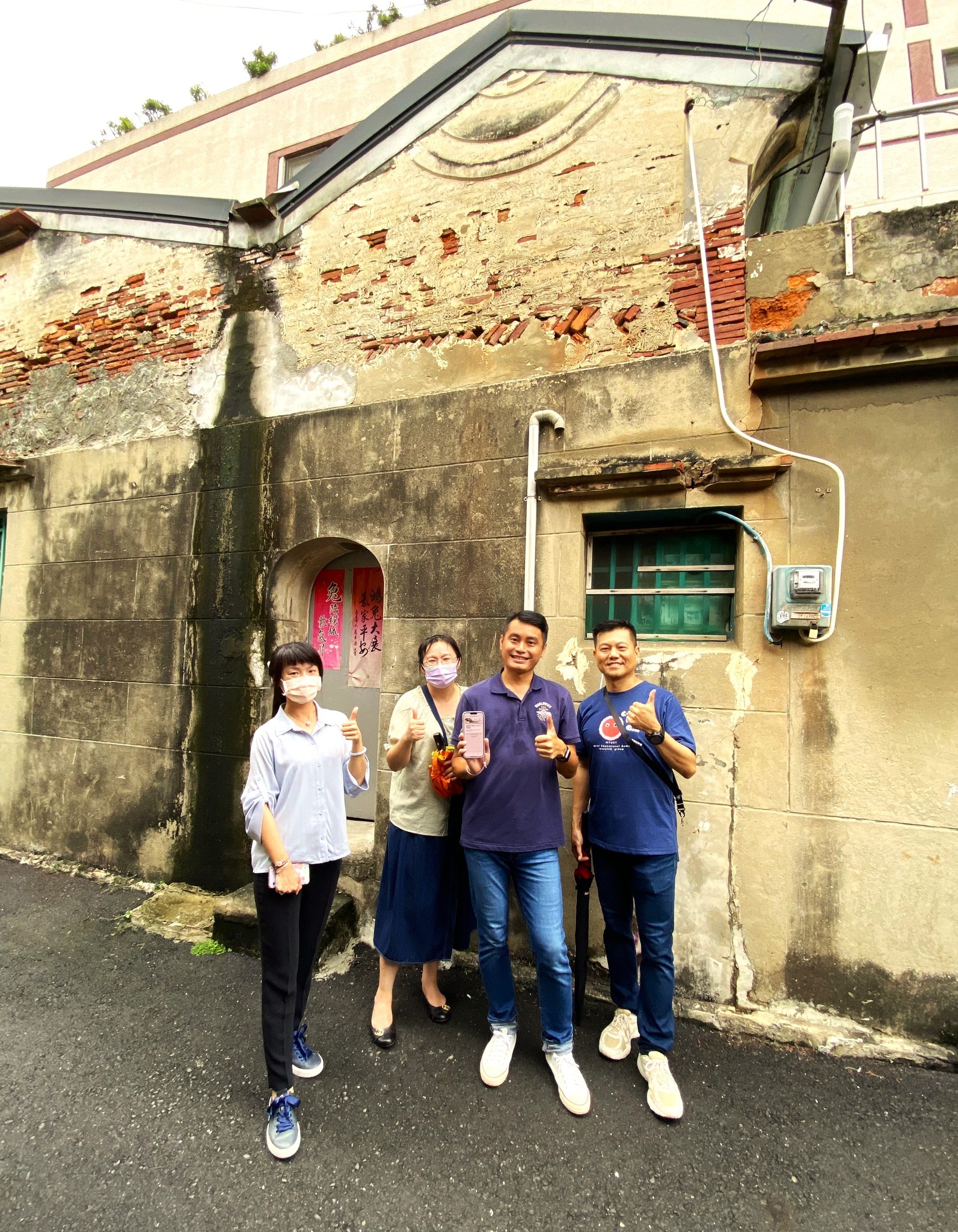
School principals, teachers, students, the mayor of Puzi, and the chief of Yizhu Township participated in the trial gameplay of “Reunion in Puzi Streets”




